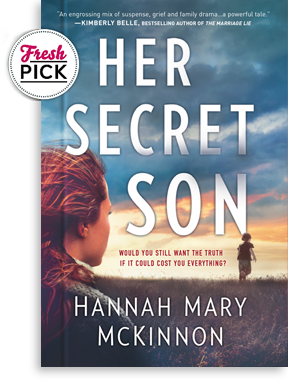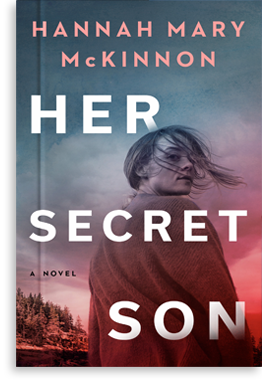Chapter One
***
They say the lucky ones experience an incredible, life-defining moment, a moment they can point back to as the second everything changed. Maybe it was sitting down on the bus next to a stranger who became the love of their life. Or witnessing the birth of a child they were told they’d never conceive.
Perhaps getting that elusive break the day the boss had the flu, launching a career that, until then, was only the stuff of dreams.
And then there are the others. People like me, who have life-shattering moments instead. We’re the ones who want to believe we’ve had more than our fair share of bad luck, enough misfortune to last multiple lives over. We get comfortable, believe nothing else can go wrong because fate has already played
with us the most, seen how far we can be stretched and bent, twisted into the shape of a pretzel before becoming brittle and shattering into a million pieces.
For me, one of these moments came late one Friday morning as I stood in Harlan Gingold’s dark, wood-paneled study, the musty air closing in on me. I pulled at the neck of my sweater in a futile attempt to cool down. I’d forgotten how warm he kept this room, as if he secretly longed to be a gecko under a heat lamp and pretend he was somewhere far closer to the equator than the outskirts of Albany, in upstate New York.
His study smelled of expensive whisky and Cuban cigars, wizened fingers left to linger in an ashtray. A stereotypical rich man’s man-cave, complete with leather armchairs and gold-lettered law books Harlan no doubt cited by heart when he valiantly fought—and usually won—his cases in court, something
he’d done for longer than I’d been alive.
We were going over the quote for the pool house extension and elaborate backyard revamp he’d promised his wife for the spring. While he checked the details again, running an index finger down the page, I tried to ignore the buzz of my mobile in my back pocket. Harlan was the kind of man who commanded nothing but your undivided attention. In this case I couldn’t blame him. Not with the amount of zeros he was writing on the deposit check my bosses had sent me to collect.
My phone rang a second time. While Harlan put the final flourish on the paperwork with his thick Mont Blanc fountain pen, I slid my mobile from my pocket and glanced at the screen. My neighbor’s number. Nothing unusual in itself. Mrs. Banks often called for a hand around the house—putting together yet another of her bookcases, repairing the front door, unblocking a sink. Nothing that couldn’t wait or would justify the lecture about people’s dependence on technology Harlan would no doubt dispense if I answered.
“There you go, Josh,” he said as he handed me the check.
“Thanks,” I said. “I’ll see you next month?”
“Yes. I’ve no doubt you’ll do a great job, as always. My yard has never looked better. Those Fraser firs were the talk of the street when they were lit up for Christmas. Even Ivan was impressed.”
I grinned, thinking I’d enjoy ribbing Ivan about not paying the compliment forward. I wouldn’t give him too much of a hard time. He’d become my best mate since we’d met a few years back, and since then he’d pointed a number of his friends and colleagues my way, including the firm’s biggest cheese and
Ivan’s uncle, Mr. Harlan Gingold himself. When I’d told Ivan I owed him one, he’d cheerily replied, “Better make it a big one, whatever it is,” before graciously settling for a pair of football tickets I’d got on the cheap.
Harlan accompanied me to the front porch where he shook my hand as I ignored the ongoing buzzing of my phone. He lifted his nose toward the dark gray, early March skies, swirling with ominous fast-moving clouds, and breathed in deep, nostrils flaring. “Something wicked this way comes,” he said. “You’d better batten down the hatches, son. You Brits aren’t used to our snow. Tell that lovely wife of yours to keep you safe.”
I didn’t bother reminding him Grace and I weren’t married, or argue that, despite my strong British accent, I’d lived in the US for twenty years. I was only too familiar with the legendary winters. For crying out loud, the city competed in the annual Golden Snowball Award, although it regularly lost to Syracuse. As Grace once said, upstate New York was where lake effect and nor’easter storms mated, making trillions of snowflake babies, and everyone’s life beneath a frozen misery.
When we’d said our goodbyes, I finally pulled my phone from my pocket and trudged to my truck, glancing at the darkening skies, thinking Harlan’s prophecy could turn out to be the understatement of the season. Not that I’d mind a blizzard, within reason, anyway. It was Friday, the weekend gloriously stretching out ahead of us. As far as I knew, work didn’t need me, and Grace hadn’t mentioned any special plans. So what if we couldn’t leave the house? It would mean a family weekend; Grace, Logan and I huddled under the blankets in front of the TV, eating popcorn and watching movies, exactly the way we liked it.
If I’d known what was actually coming, how my life was about to be forever, indelibly changed, I wouldn’t have grabbed my mobile so hastily. I’d have taken a few moments to savor how my life had become simple again, full of uncomplicated, innocuous decisions. I’d have mulled over my mundane lunch
choices. Thought about which film Grace and I would watch once we’d tucked Logan up in his bed. What Grace and I would do to each other later, after we’d headed upstairs, too. I’d have enjoyed the excitement building in my gut when I pictured the ring I’d hidden at the back of my sock drawer, a gold band solitaire I’d saved up for over the last year in the hope Grace would say yes this time.
But I didn’t do any of that. Instead I unlocked my phone, looked at all the missed calls from Mrs. Banks and dialed voice mail. My brow furrowed as I listened to her message. She sounded unusually high-pitched and grating, breathless, even, as if she were in the middle of a ten-mile run. A feat in itself
considering she was in her midseventies and walked with a stick.
“Josh, it’s Mrs. Banks,” she said. “There’s been an accident. Can you call me? Please. It’s urgent. Call me now.”
I pushed a hand against the truck to steady myself. Perhaps her grandson had put his soccer ball through our bathroom window again. Or maybe the mangy dog who’d been hanging around the house, the one I’d caught Logan feeding his breakfast to, had dug up the tulip bulbs Grace replanted twice already. Although I grabbed hold of both ideas like a shipwrecked man to driftwood, I knew from Mrs. Banks’s voice it was more serious. Way more serious. My next thoughts went to Logan, peppering my brain like fully automatic gunfire.
He’s hurt. Grace can’t call. She’s with him. She told Mrs. Banks to phone. How bad is it? He’s only seven. Christ! What’s going on?
When I tried to hit redial, I missed the button four times, my fingers—thick and limp as raw sausages—impossible to maneuver. Finally I pressed the phone to my ear, and Mrs. Banks picked up on the first ring.
“Josh! Oh, thank goodness.” Her voice sounded shakier than before, and I could barely make out her words with the crackling and whooshing of the wind in my ear.
“What’s happened?” I said, an icy hand sneaking its way down to my stomach, grabbing hold of my innards and yanking hard. “Is Logan okay? Where is he? Has he—”
“It’s not Logan… It’s…it’s…”
Saliva collected in my mouth as Mrs. Banks stopped talking. Just as I was about to shout into the phone, demand she tell me what was going on, she very quietly said, “It’s Grace.”
My stomach lurched, threatened to empty itself right there on Harlan’s driveway. I’d been so sure Logan was hurt, I thought I’d misheard, but she said it again. “It’s Grace.”
I opened and closed my mouth three times, my tongue refusing to form a single syllable until I finally managed, “Is she okay? What happened?”
“I was drinking my coffee by the window—” Mrs. Banks’s voice sped up, an out-of-control freight train barreling straight toward me “—when I saw Grace taking out the garbage and…and, oh, Josh…she slipped on the steps.” Her words came out garbled now, making it harder for my brain to process what it
already struggled to decode. “She went down.”
“Where is she?”
Mrs. Banks’s voice fell to a strained whisper, as if she were pressing a hand over her throat, trying to keep her next sentence inside. “When she didn’t get back up, I—”
“Where is she?”
“—ran over and…and…” Her voice tailed off, the last syllables gobbled up by a sob. “We’re outside. The ambulance is here. And the police. You need to come home. Please, come home now.”
“But Grace is okay? Has she broken anything? Can I talk to her?” Silence. “Mrs. Banks, please. Is she okay?”
More silence, a whisper. “I don’t think so, Josh. I really don’t think so.”
Yes, this was one of those life-shattering moments, an instance I’d point to in the future and say it was the second everything changed. And I was right.
Except that worse—far, far worse—was still to come.
***
Excerpted from Her Secret Son by Hannah Mary McKinnon, Copyright © 2019 by Hannah McKinnon.
Published by MIRA Books

















